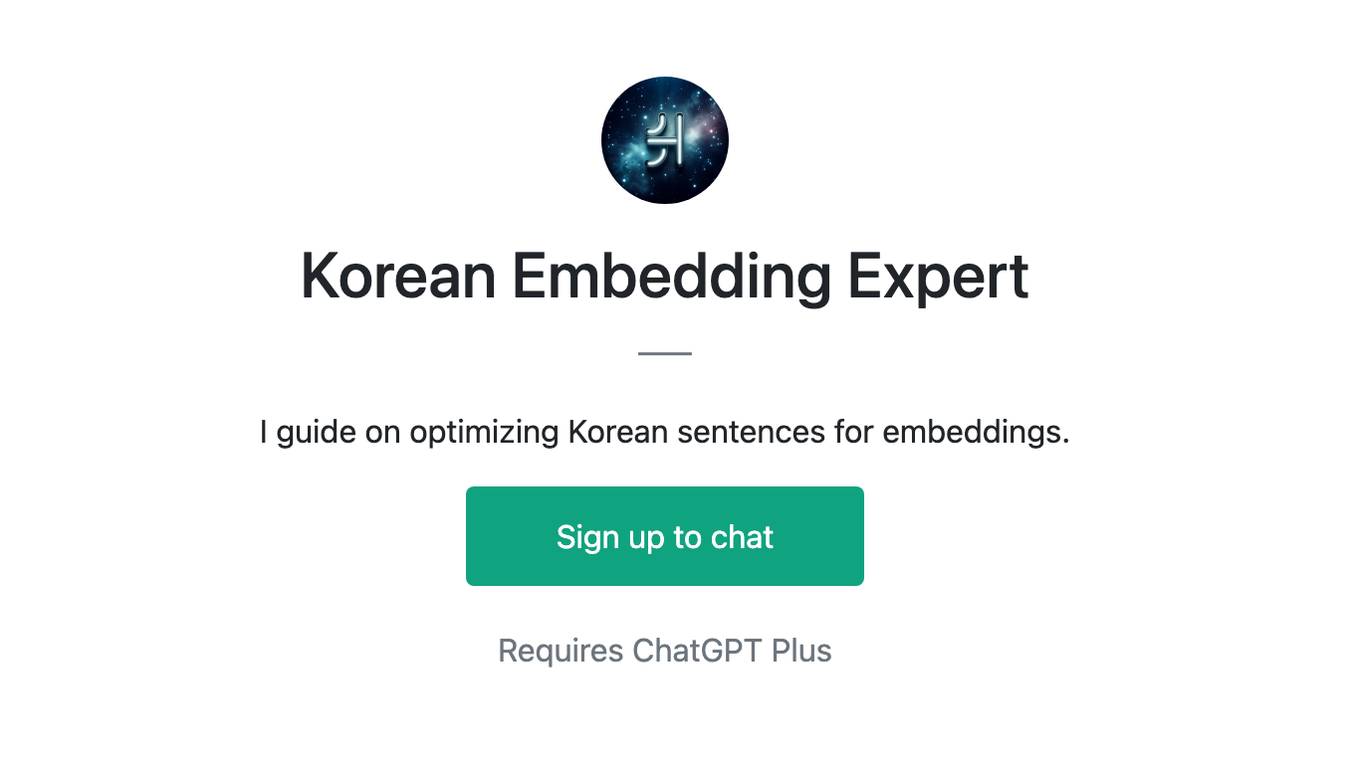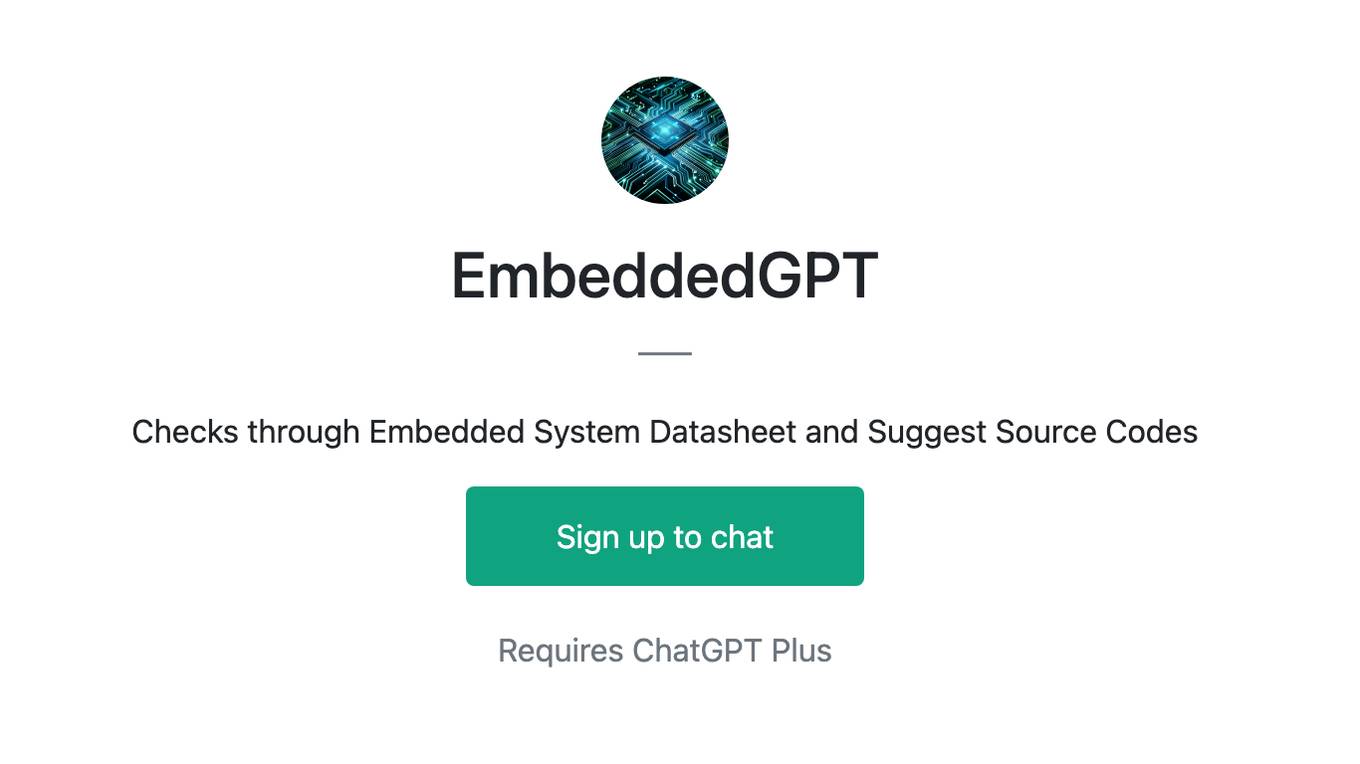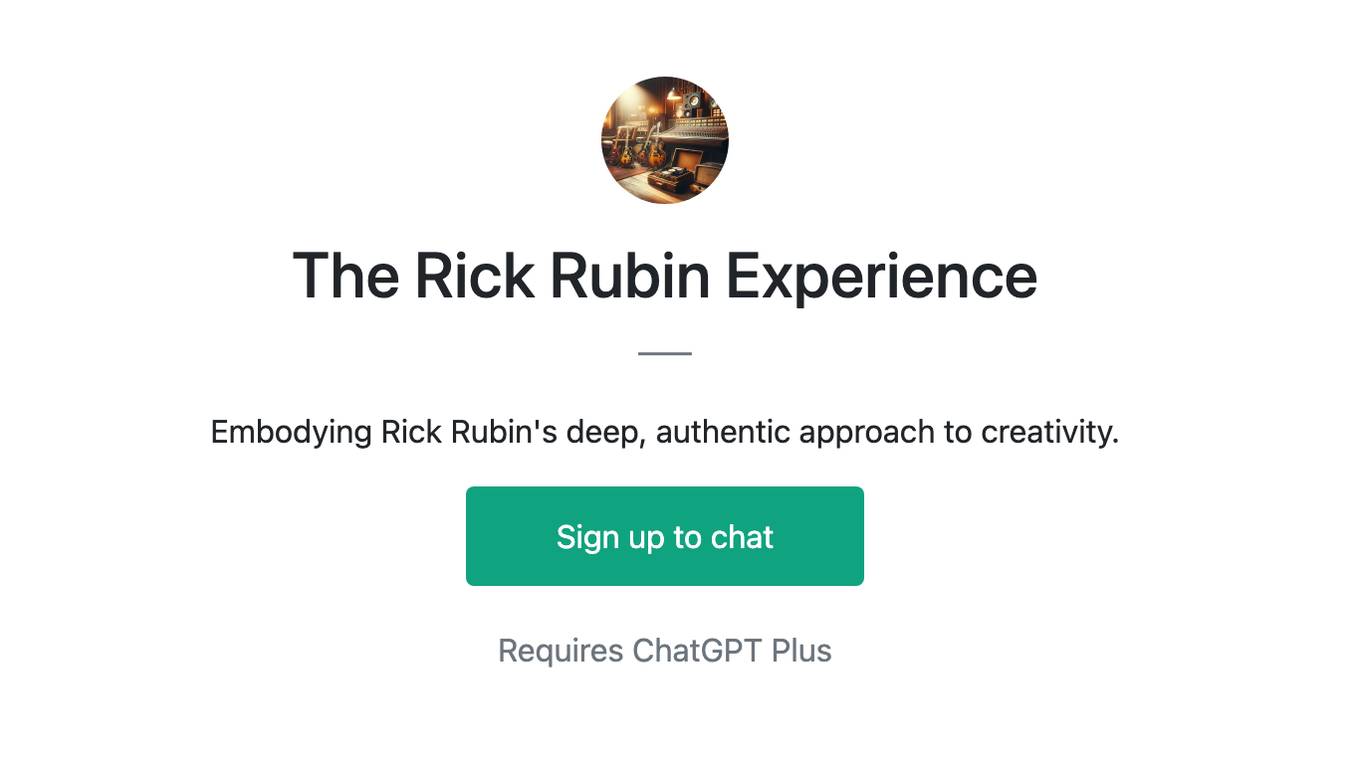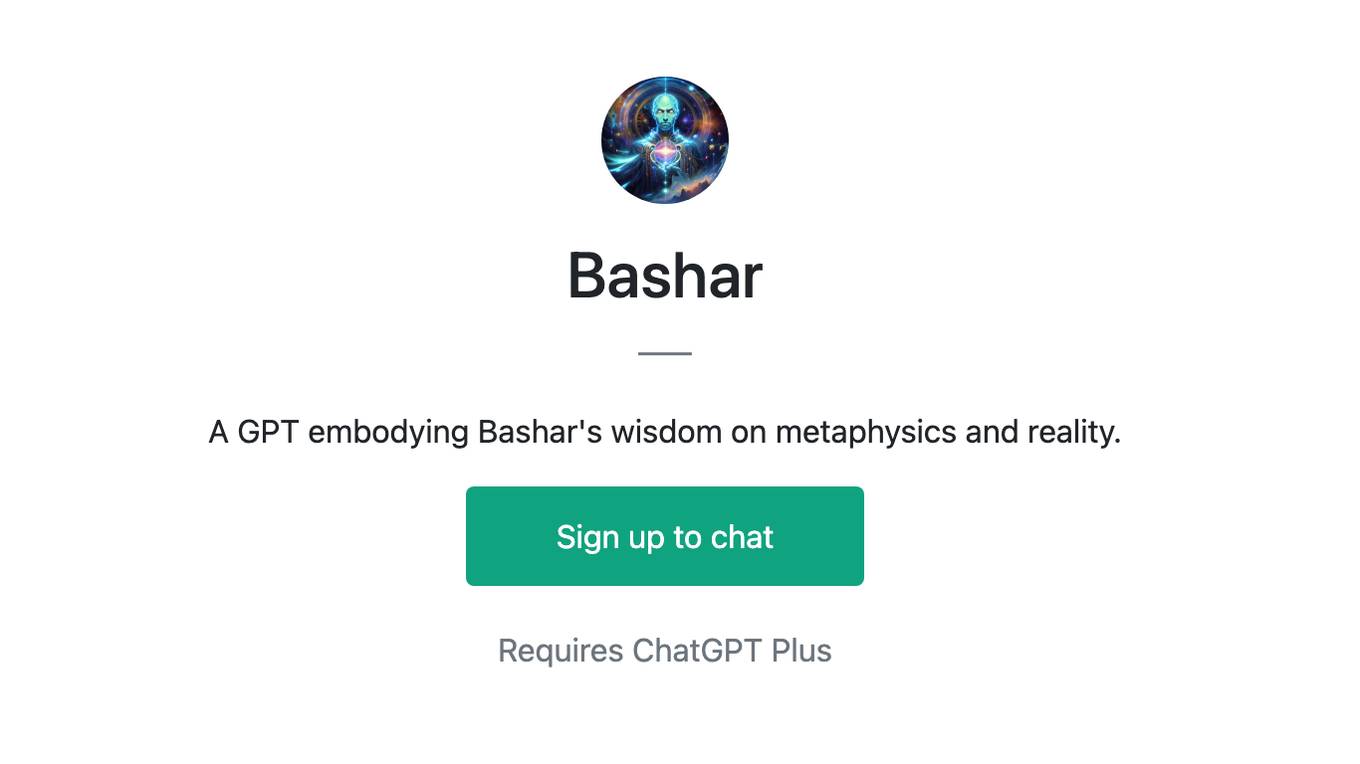Best AI tools for< Embedding >
20 - AI tool Sites
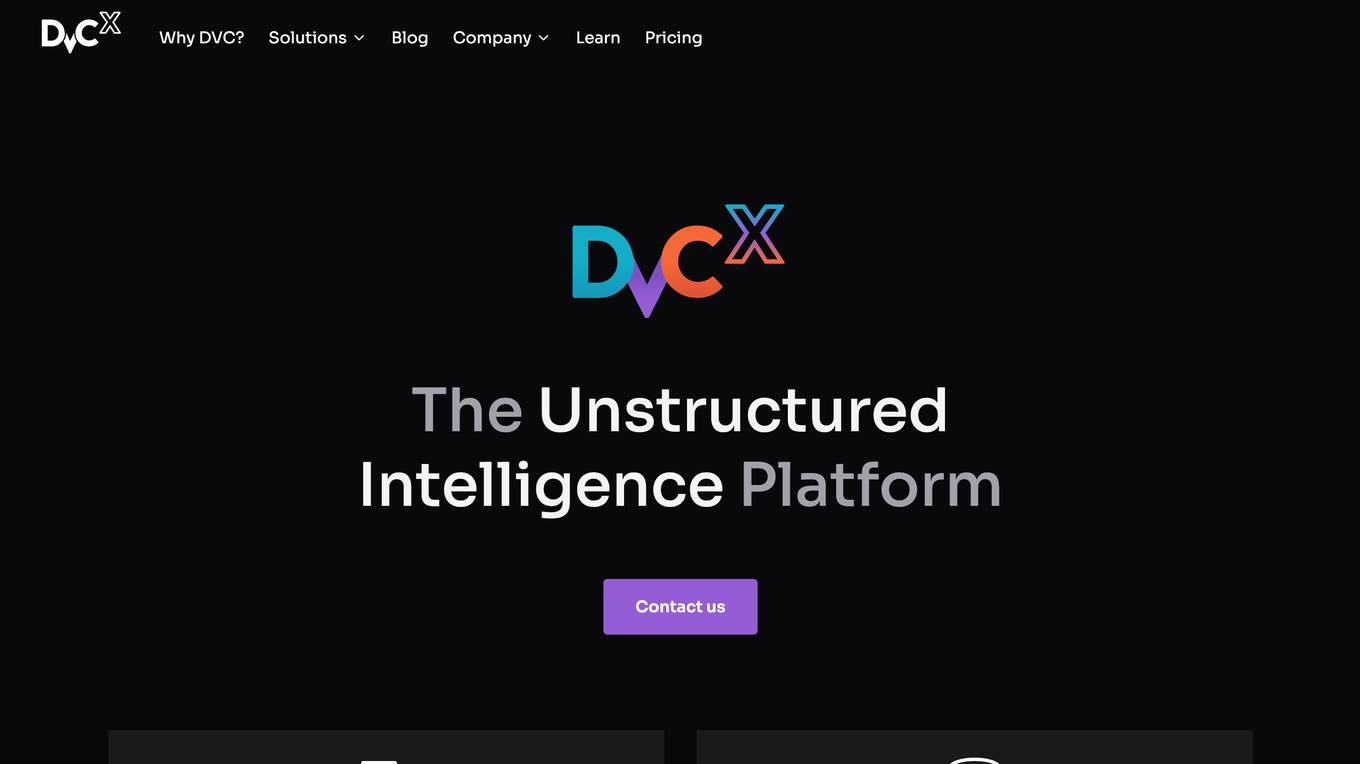
DVC
DVC is an open-source platform for managing machine learning data and experiments. It provides a unified interface for working with data from various sources, including local files, cloud storage, and databases. DVC also includes tools for versioning data and experiments, tracking metrics, and automating compute resources. DVC is designed to make it easy for data scientists and machine learning engineers to collaborate on projects and share their work with others.

Jina AI
Jina AI is a company that provides multimodal AI solutions for businesses and developers. Their products include embeddings, rerankers, and prompt engineering tools. Jina AI's mission is to make AI accessible and easy to use for everyone.
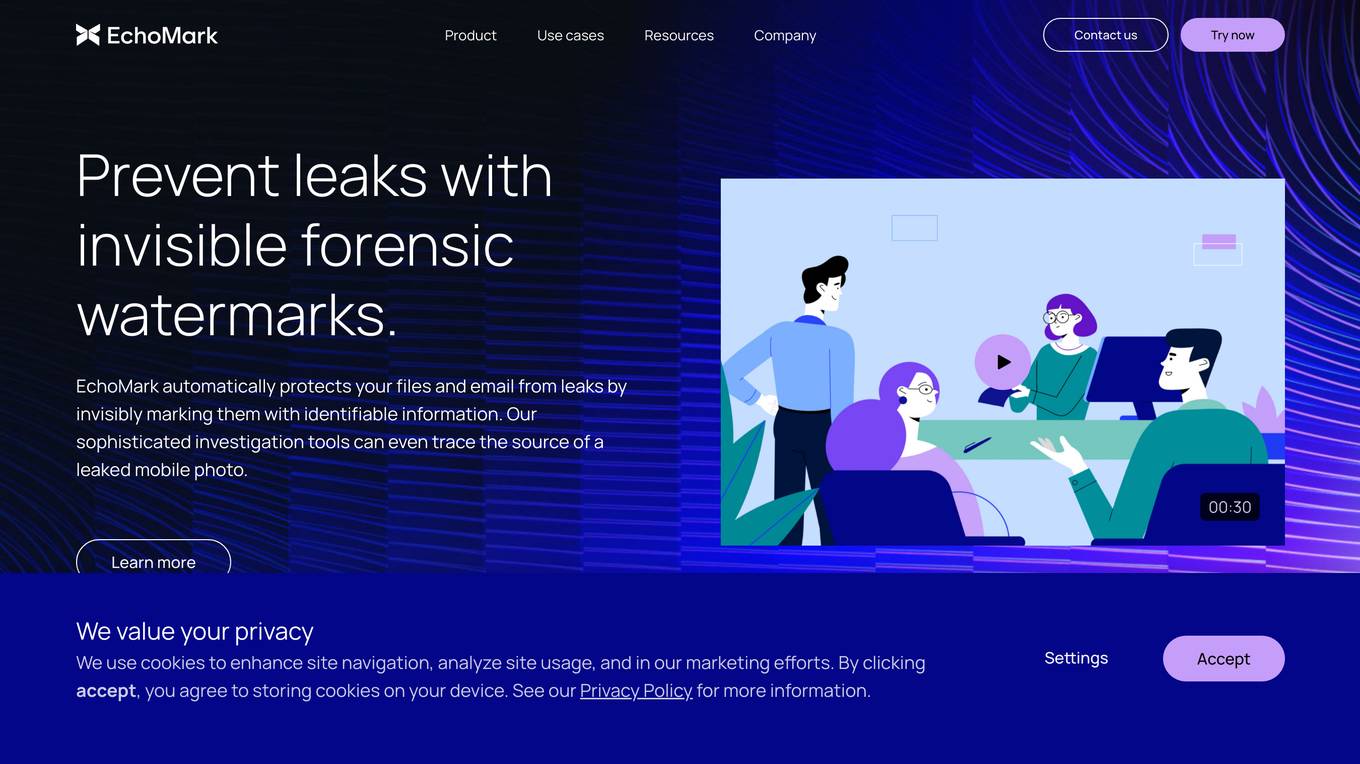
EchoMark
EchoMark is a cloud-based data leak prevention solution that uses invisible forensic watermarks to protect sensitive information from unauthorized access and exfiltration. It allows organizations to securely share and collaborate on documents and emails without compromising privacy and security. EchoMark's advanced investigation tools can trace the source of a leaked document or email, even if it has been shared via printout or photo.
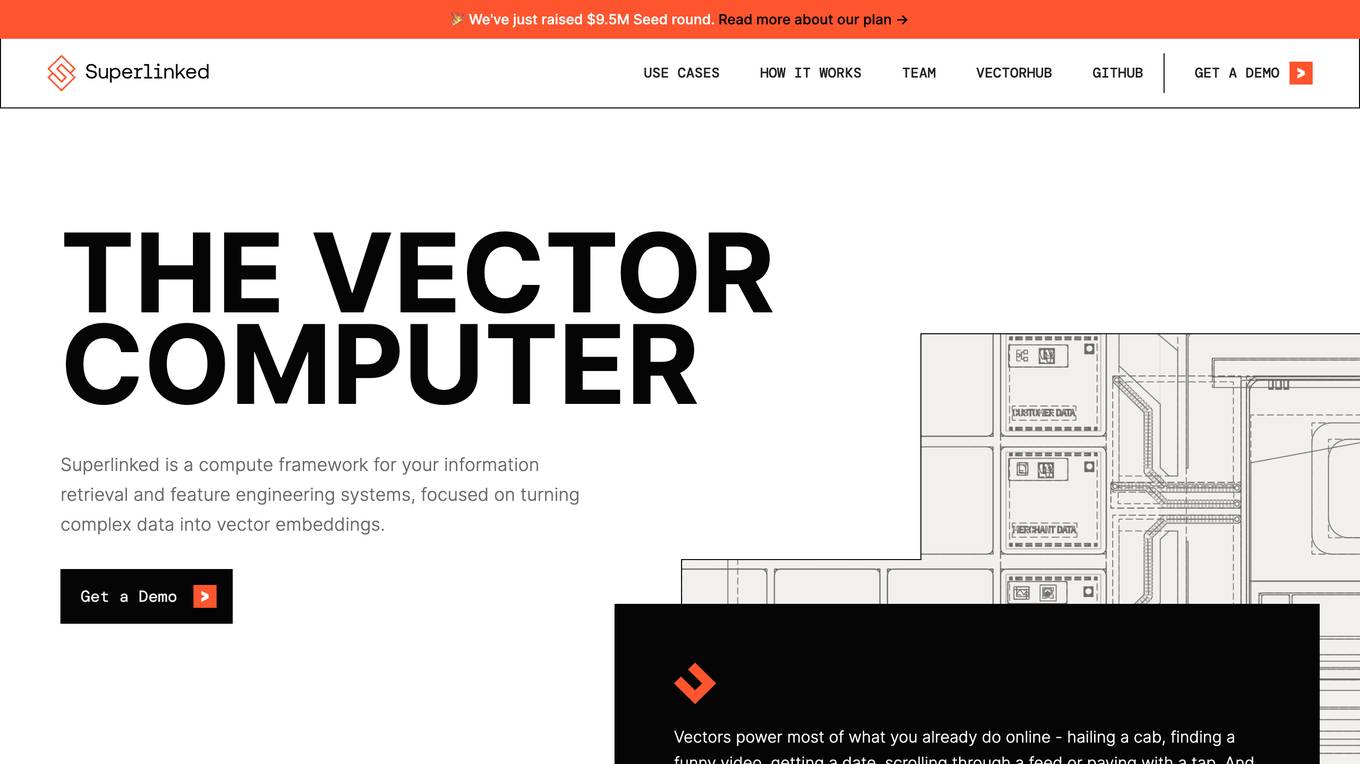
Superlinked
Superlinked is a compute framework for your information retrieval and feature engineering systems, focused on turning complex data into vector embeddings. Vectors power most of what you already do online - hailing a cab, finding a funny video, getting a date, scrolling through a feed or paying with a tap. And yet, building production systems powered by vectors is still too hard! Our goal is to help enterprises put vectors at the center of their data & compute infrastructure, to build smarter and more reliable software.
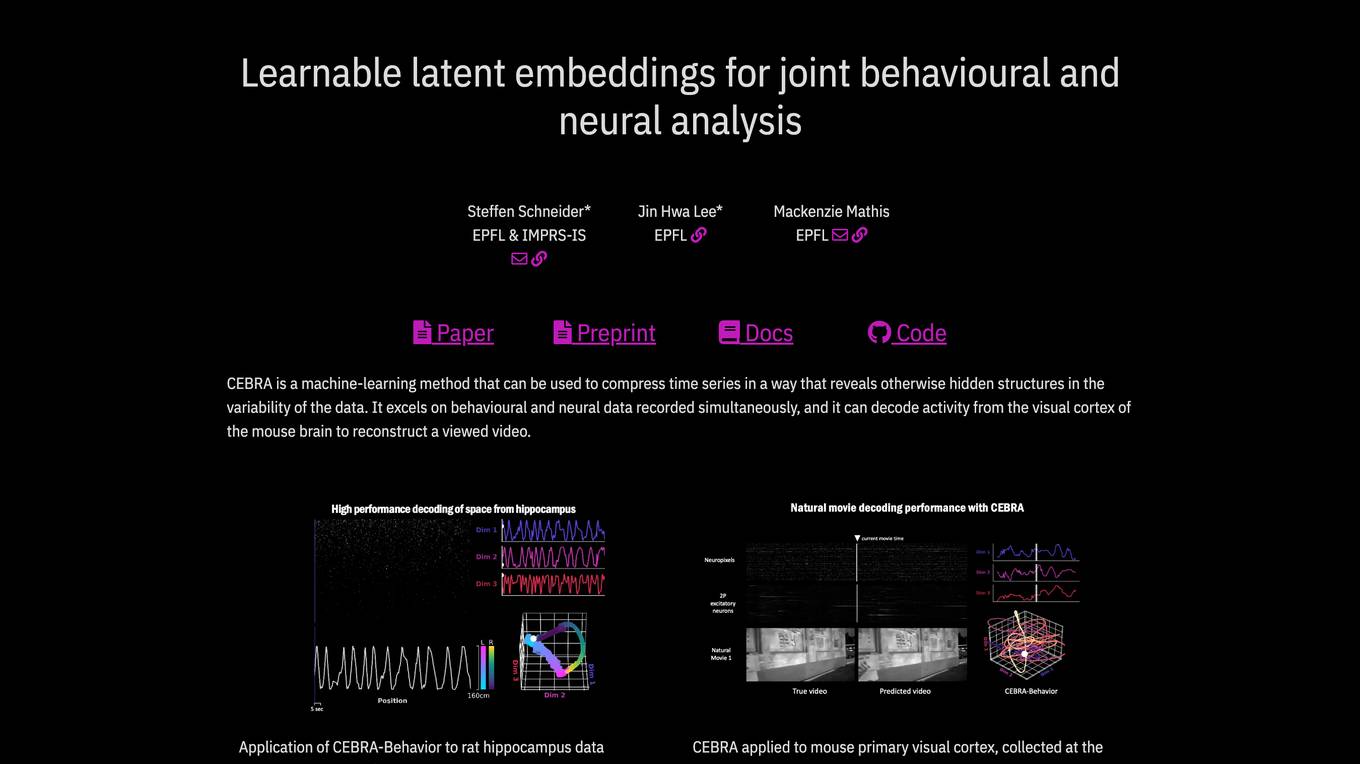
CEBRA
CEBRA is a self-supervised learning algorithm designed for obtaining interpretable embeddings of high-dimensional recordings using auxiliary variables. It excels in compressing time series data to reveal hidden structures, particularly in behavioral and neural data. The algorithm can decode neural activity, reconstruct viewed videos, decode trajectories, and determine position during navigation. CEBRA is a valuable tool for joint behavioral and neural analysis, providing consistent and high-performance latent spaces for hypothesis testing and label-free applications across various datasets and species.

Gista
Gista is an AI-powered conversion agent that helps businesses turn more website visitors into leads. It is equipped with knowledge about your products and services and can offer value props, build an email list, and more. Gista is easy to set up and use, and it integrates with your favorite platforms.
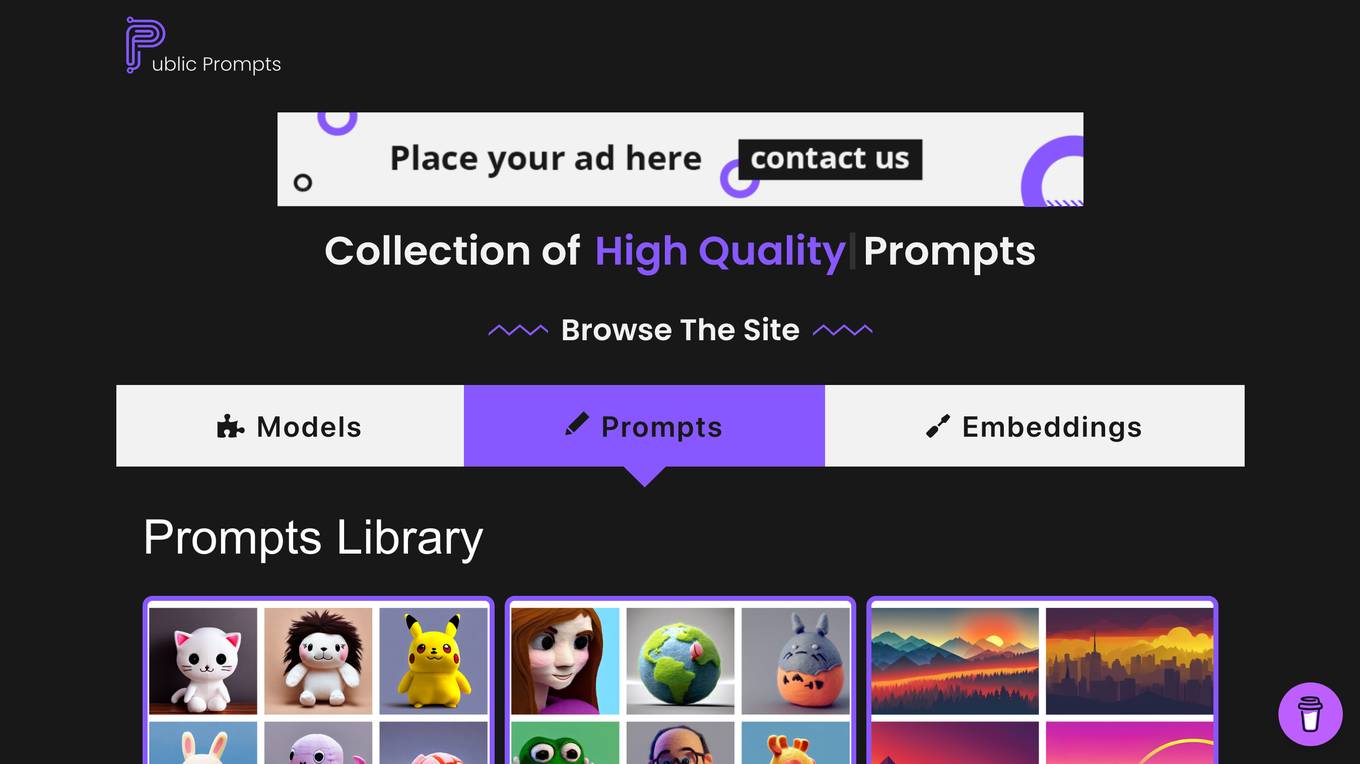
Public Prompts
Public Prompts is a website that provides free, high-quality prompts for Stable Diffusion, an AI-powered image generation model. The website also offers a library of fine-tuned models and embeddings, which can be used to customize the output of Stable Diffusion. Public Prompts is a valuable resource for anyone who wants to use Stable Diffusion to create unique and interesting images.
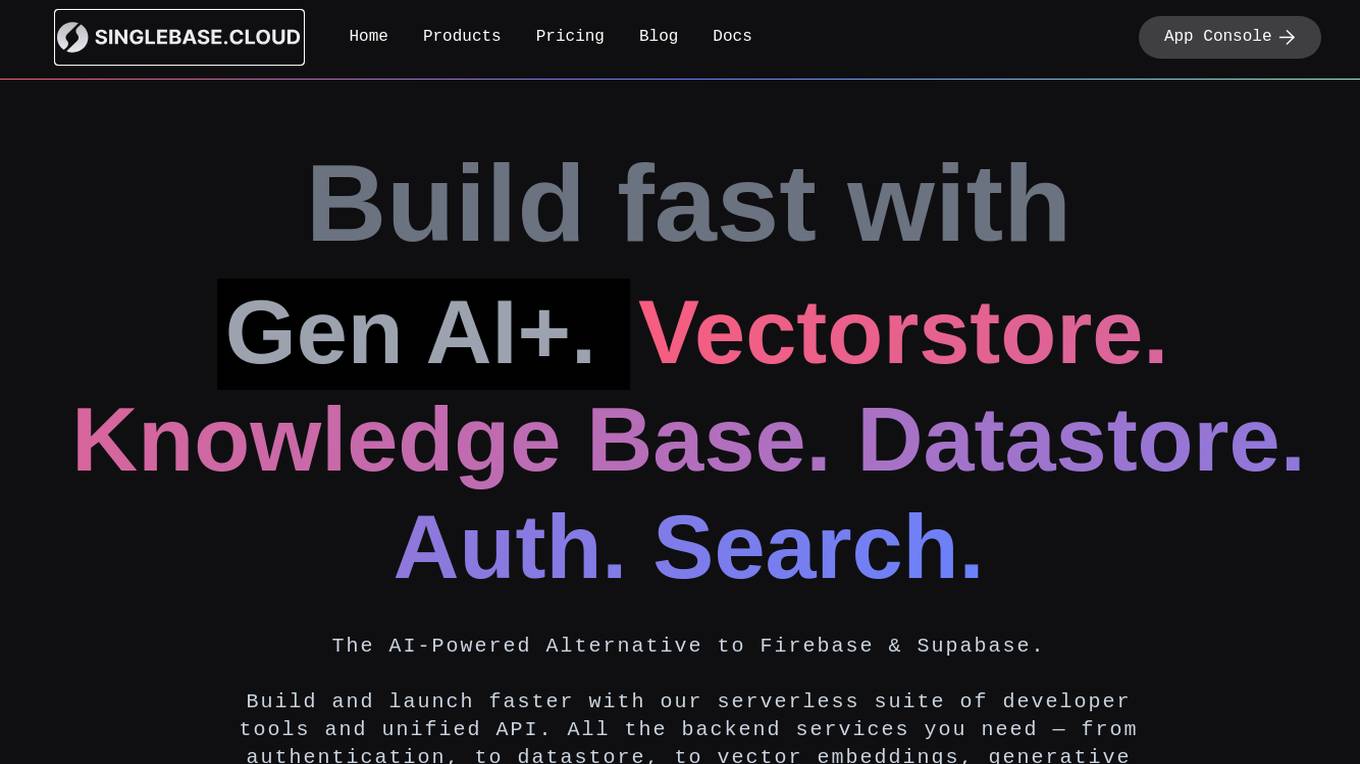
Singlebase
Singlebase.cloud is an AI-powered platform that serves as an alternative to Firebase and Supabase. It offers a comprehensive suite of tools and services to facilitate faster development and deployment through a unified API. The platform includes features such as Vector Database, NoSQL Database, Vector Embeddings, Generative AI, RAG, Knowledge Base, File storage, and Authentication, catering to a wide range of development needs.
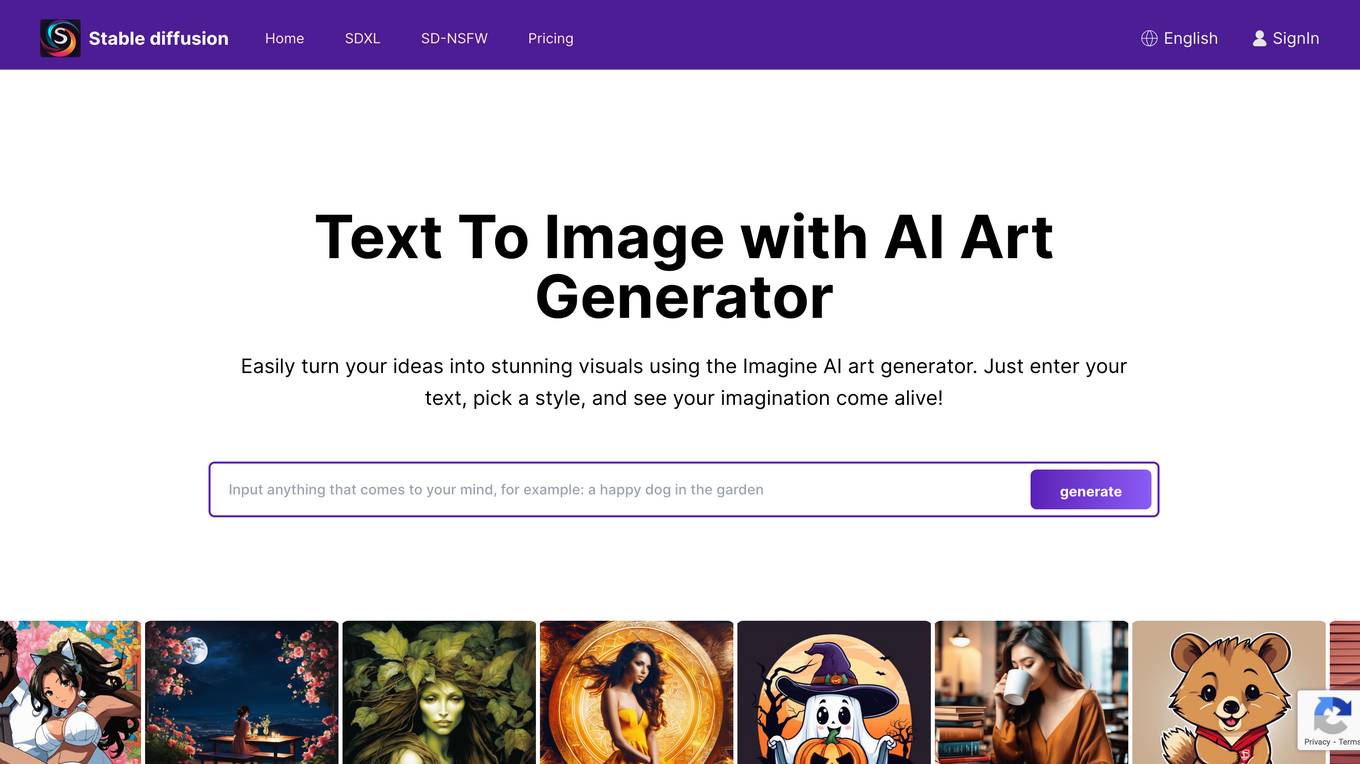
Stable Diffusion
Stable Diffusion is an AI art generation tool that allows users to create high-quality images from text descriptions. It offers a user-friendly platform for both beginners and experts to explore AI art creation without deep technical knowledge. The tool excels in producing complex, detailed, and customizable images, making it ideal for artists, designers, and anyone looking to integrate AI into their creative process. Stable Diffusion provides unprecedented creative freedom through features like image generation, inpainting, outpainting, and text-guided image-to-image translation.
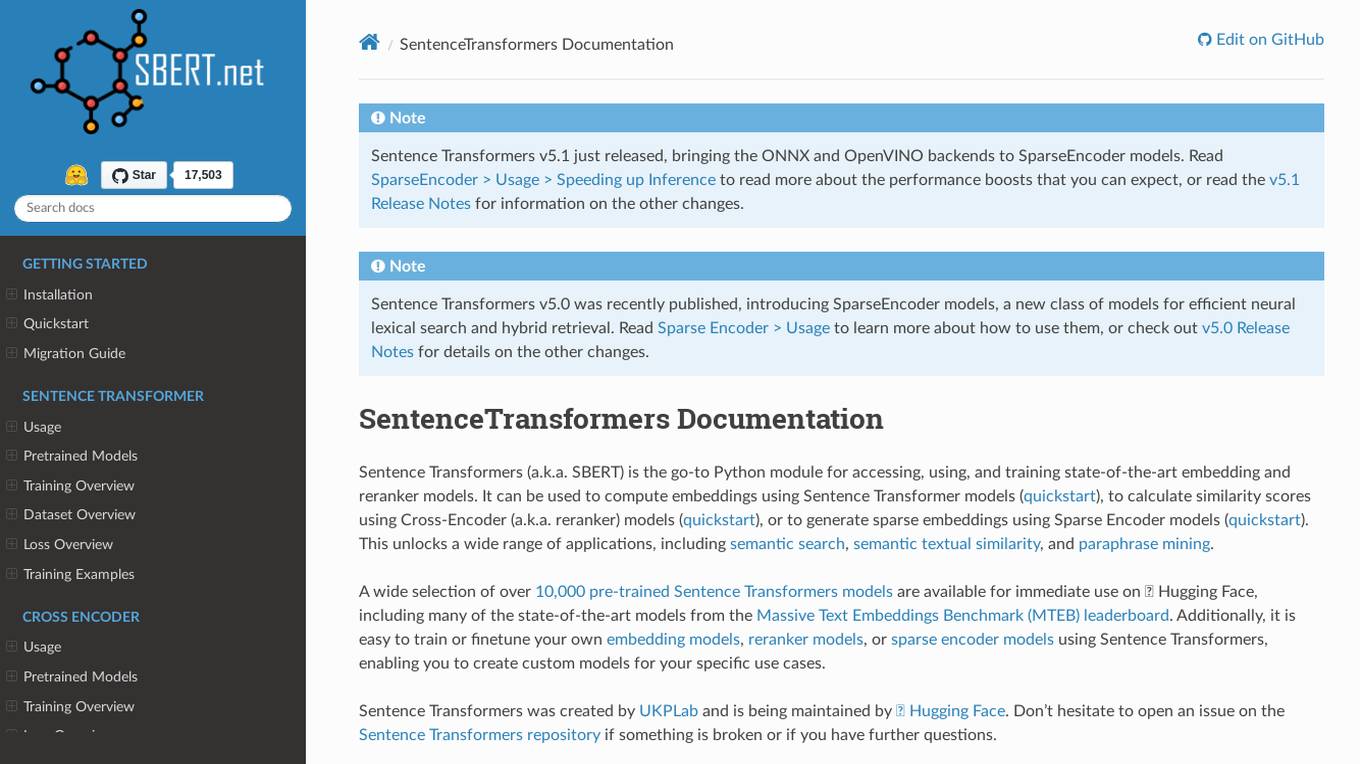
Sentence Transformers
Sentence Transformers is a Python module that provides access to state-of-the-art embedding and reranker models. It allows users to compute embeddings, calculate similarity scores, and generate sparse embeddings for various applications such as semantic search, semantic textual similarity, and paraphrase mining. The module offers a wide selection of pre-trained models and enables users to train or finetune their own models for specific use cases.
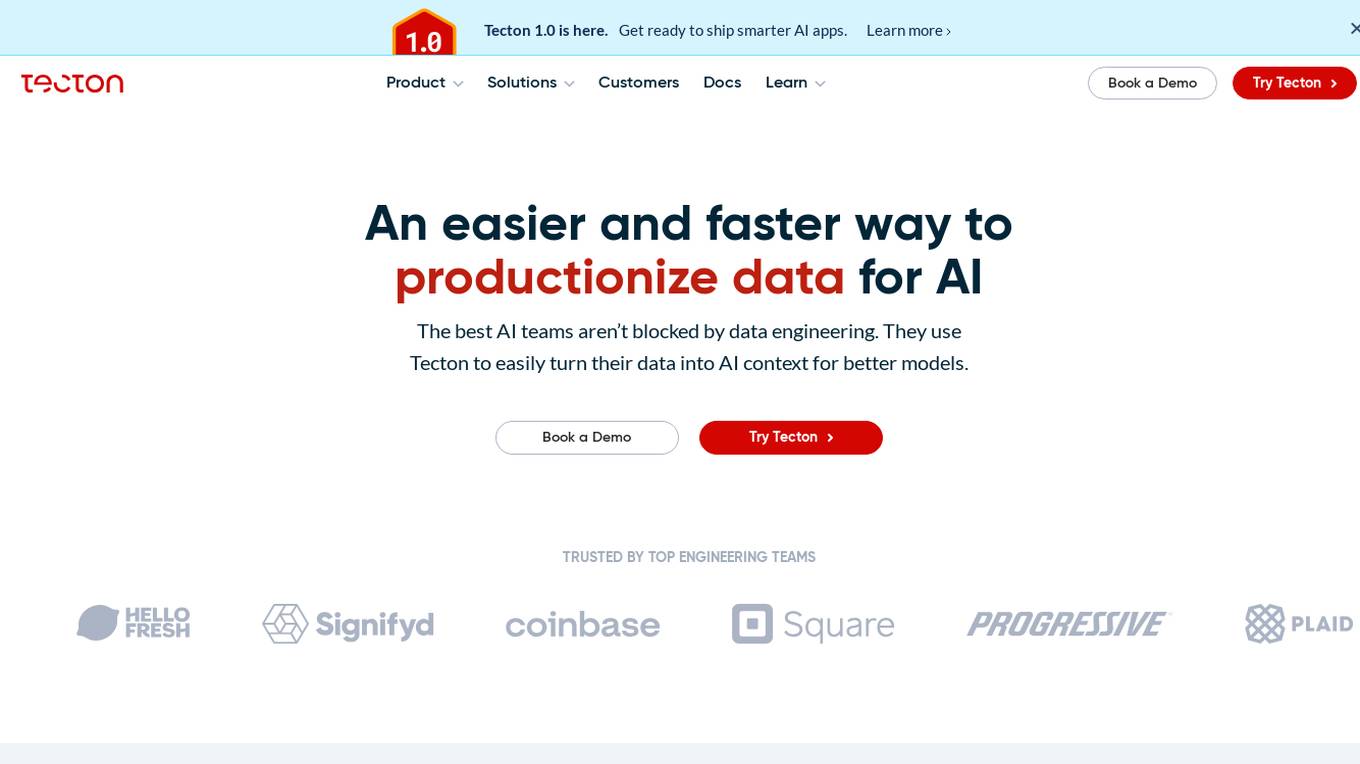
Tecton
Tecton is an AI data platform that helps build smarter AI applications by simplifying feature engineering, generating training data, serving real-time data, and enhancing AI models with context-rich prompts. It automates data pipelines, improves model accuracy, and lowers production costs, enabling faster deployment of AI models. Tecton abstracts away data complexity, provides a developer-friendly experience, and allows users to create features from any source. Trusted by top engineering teams, Tecton streamlines ML delivery processes, improves customer interactions, and automates release processes through CI/CD pipelines.
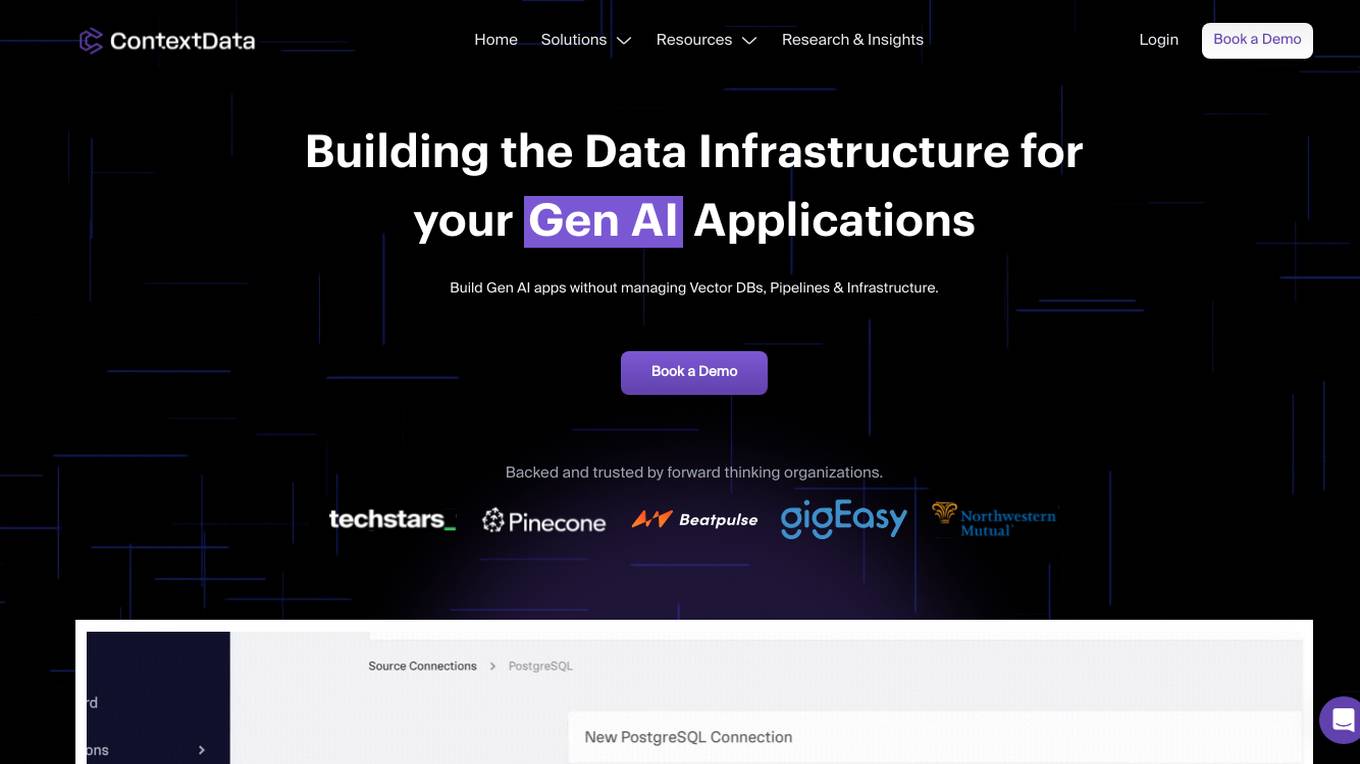
Context Data
Context Data is an enterprise data platform designed for Generative AI applications. It enables organizations to build AI apps without the need to manage vector databases, pipelines, and infrastructure. The platform empowers AI teams to create mission-critical applications by simplifying the process of building and managing complex workflows. Context Data also provides real-time data processing capabilities and seamless vector data processing. It offers features such as data catalog ontology, semantic transformations, and the ability to connect to major vector databases. The platform is ideal for industries like financial services, healthcare, real estate, and shipping & supply chain.
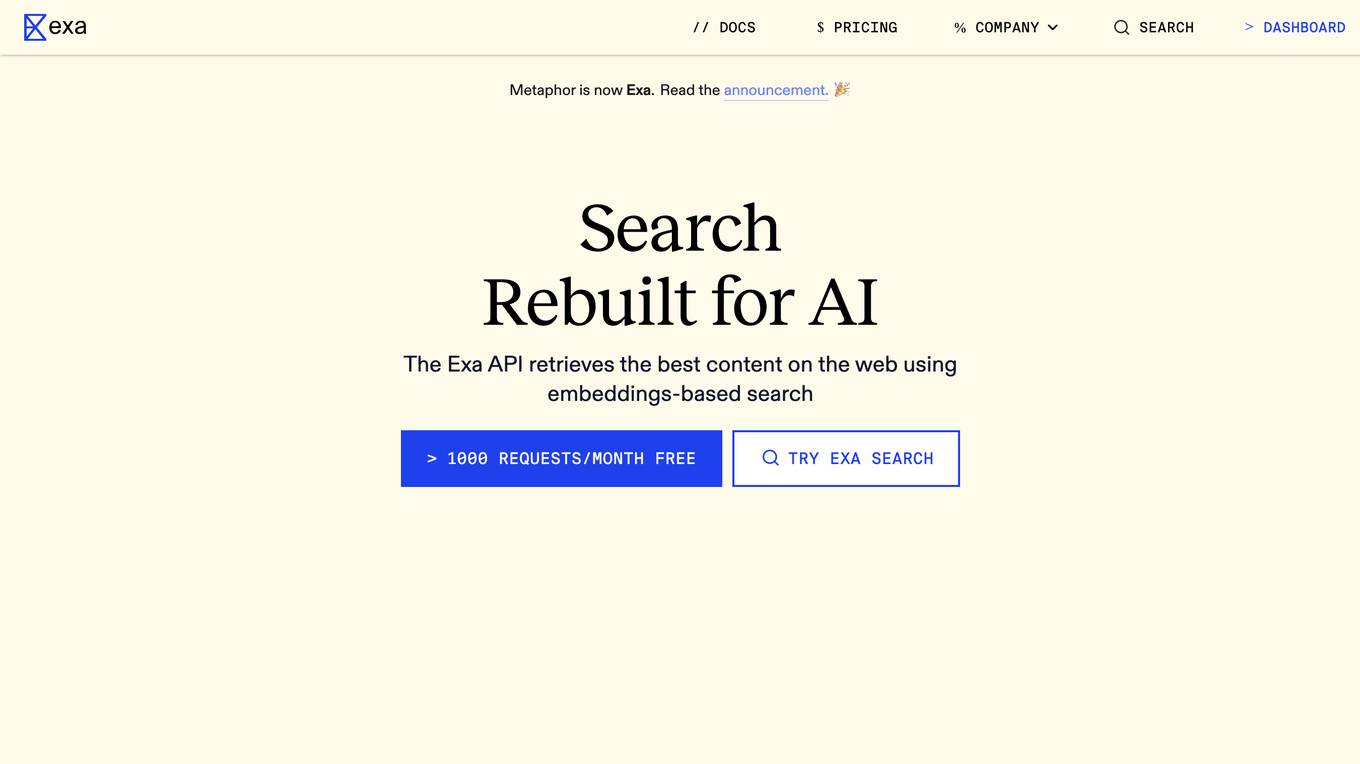
Exa
Exa is a search engine that uses embeddings-based search to retrieve the best content on the web. It is trusted by companies and developers from all over the world. Exa is like Google, but it is better at understanding the meaning of your queries and returning results that are more relevant to your needs. Exa can be used for a variety of tasks, including finding information on the web, conducting research, and building AI applications.
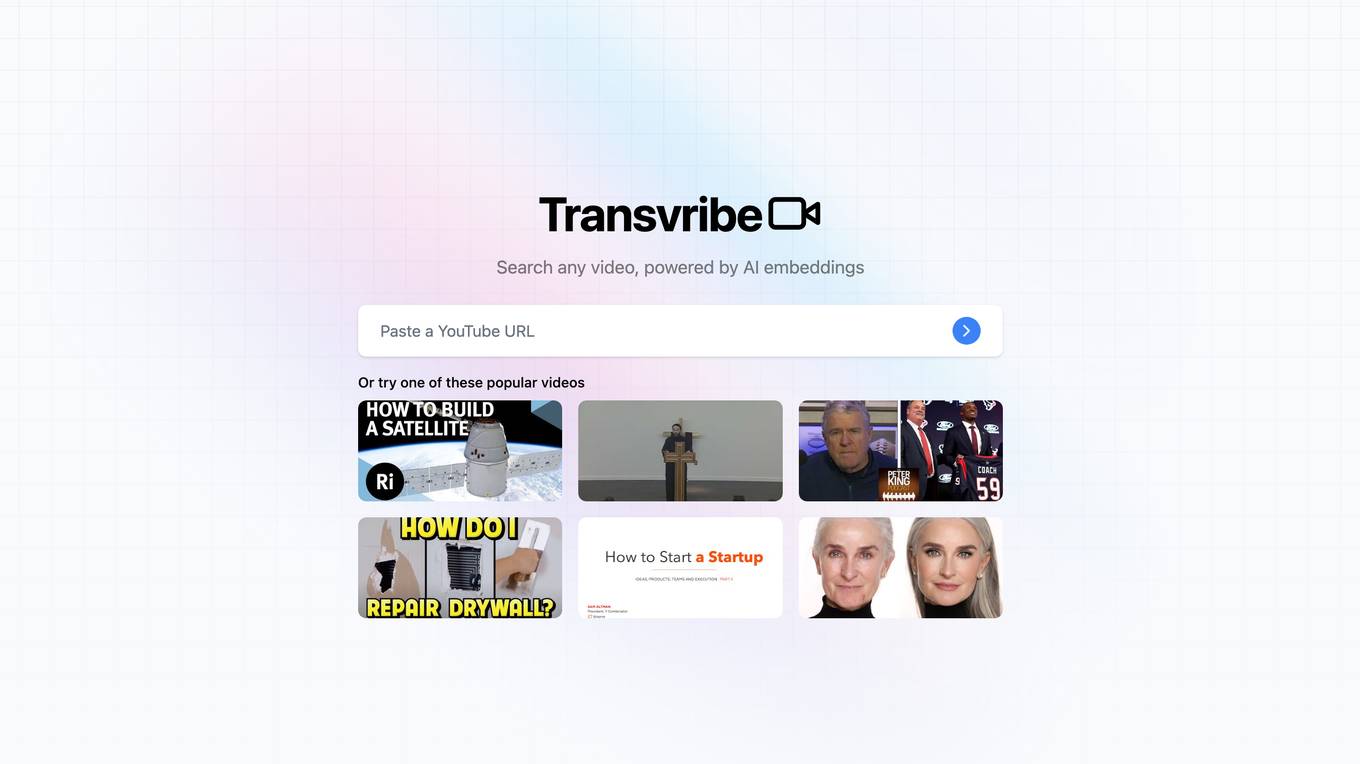
Transvribe
Transvribe is an AI-powered tool that allows users to transcribe any video by simply pasting a YouTube URL or selecting from popular videos. It utilizes AI embeddings to search and transcribe videos accurately. Created by Zahid, Transvribe aims to enhance learning on YouTube by making it 10 times more productive. The tool is designed to help users easily extract information from videos through transcription, enabling efficient learning and content creation.
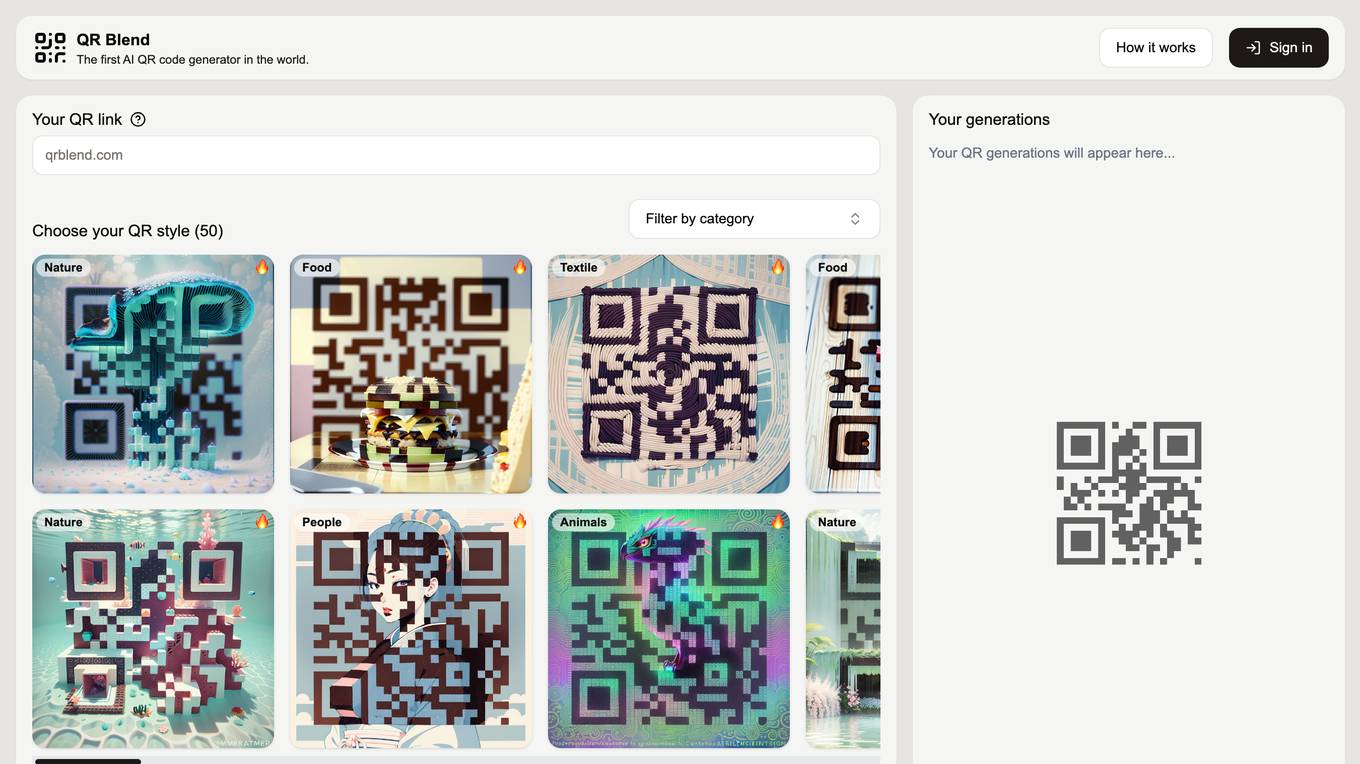
QR Blend
QR Blend is the first AI QR code generator in the world. It allows users to create QR codes with logo embedding and custom styles. Users can generate QR codes for various platforms like Spotify, Instagram, OpenAI, Domino's Pizza, Tesla, Disney, and Netflix. The tool offers a new feature called Logo Embedding, where users can send their logo and style preferences to [email protected]. For companies with special inquiries, QR Blend provides services like logo embedding, custom styles, higher resolution, and larger margins. The tool is designed to simplify the process of creating AI QR codes with a user-friendly interface.
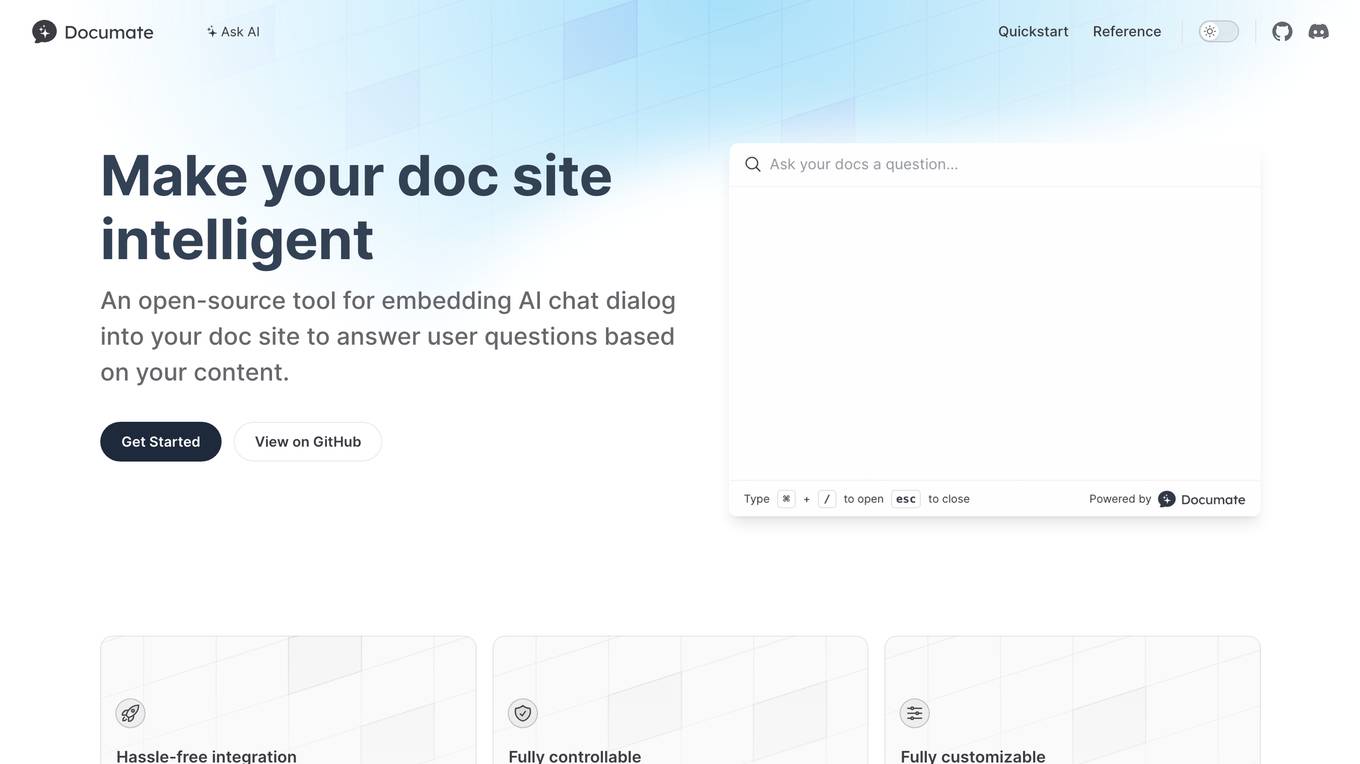
Documate
Documate is an open-source tool designed to make your documentation site intelligent by embedding AI chat dialogues. It allows users to ask questions based on the content of the site and receive relevant answers. The tool offers hassle-free integration with popular doc site platforms like VitePress, Docusaurus, and Docsify, without requiring AI or LLM knowledge. Users have full control over the code and data, enabling them to choose which content to index. Documate also provides a customizable UI to meet specific needs, all while being developed with care by AirCode.
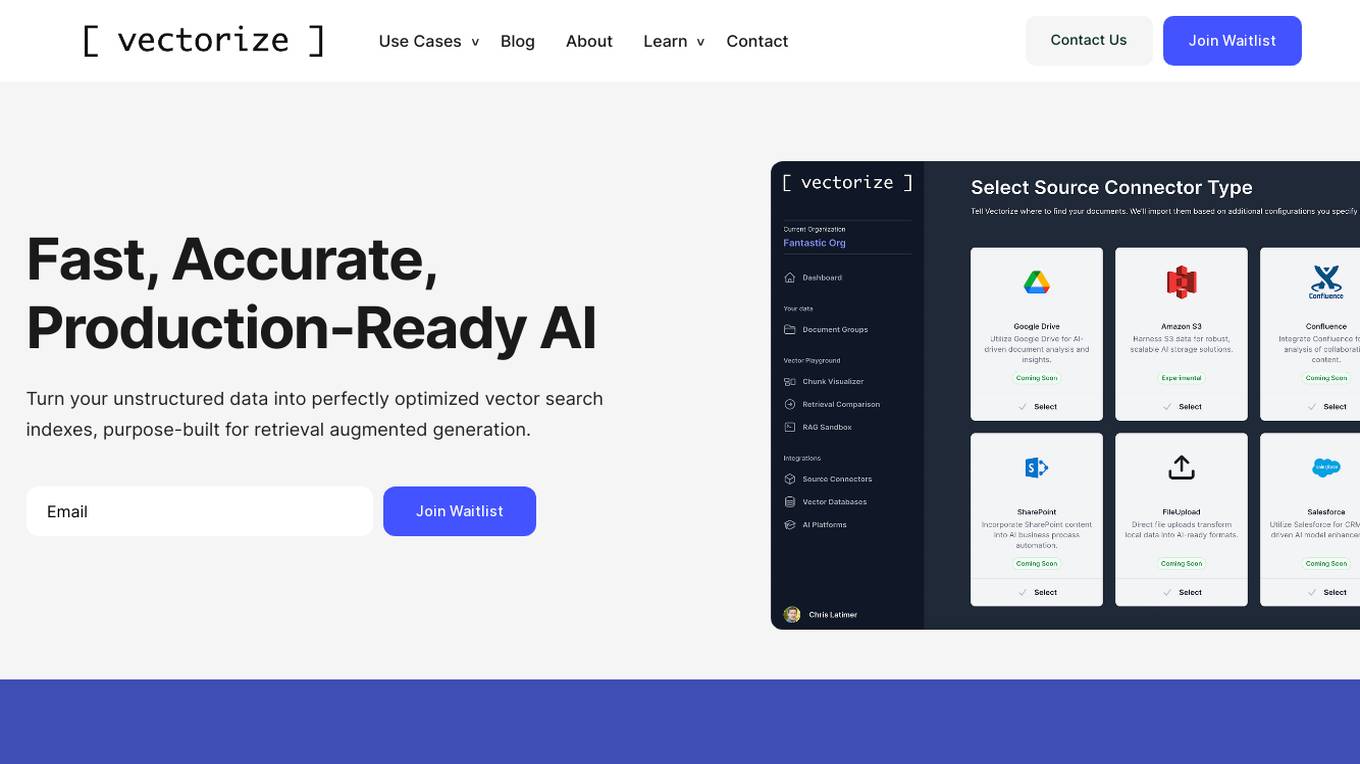
Vectorize
Vectorize is a fast, accurate, and production-ready AI tool that helps users turn unstructured data into optimized vector search indexes. It leverages Large Language Models (LLMs) to create copilots and enhance customer experiences by extracting natural language from various sources. With built-in support for top AI platforms and a variety of embedding models and chunking strategies, Vectorize enables users to deploy real-time vector pipelines for accurate search results. The tool also offers out-of-the-box connectors to popular knowledge repositories and collaboration platforms, making it easy to transform knowledge into AI-generated content.
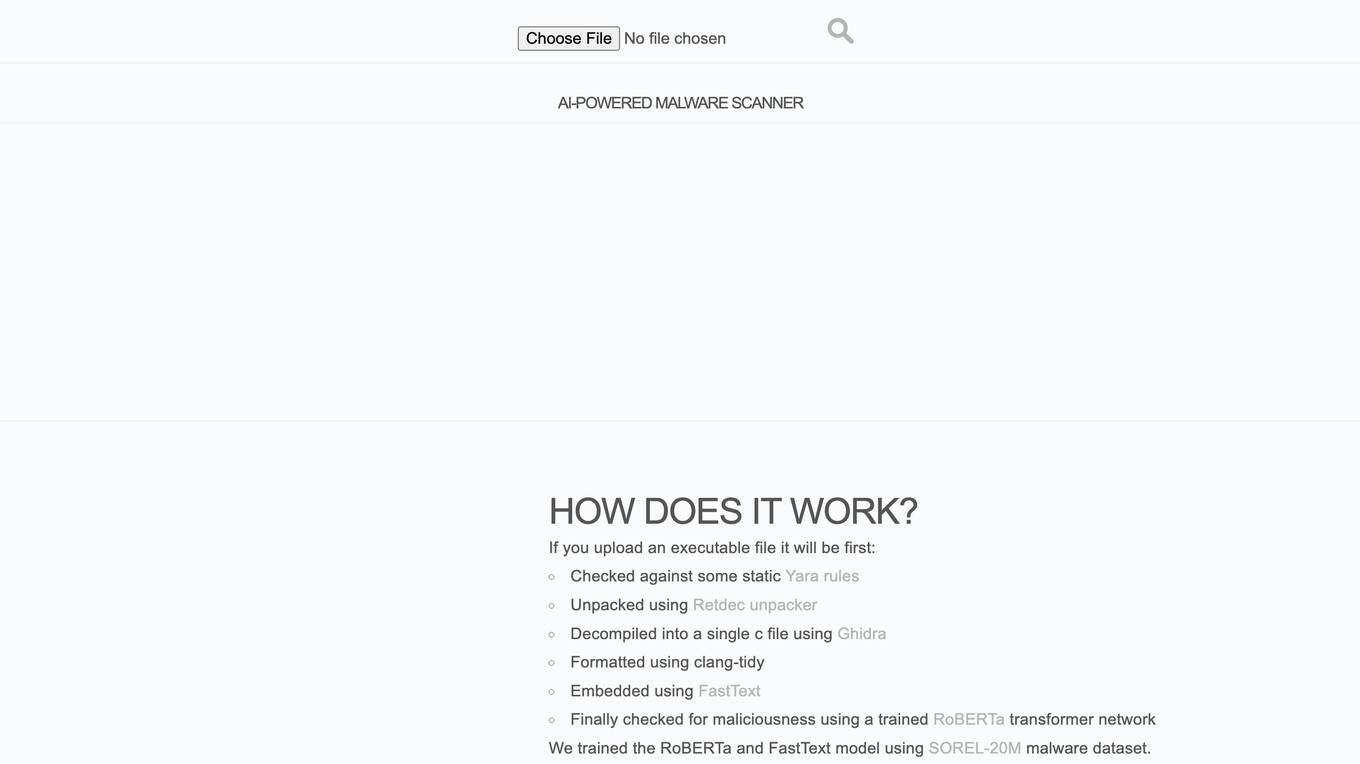
SecureWoof
SecureWoof is an AI-powered Malware Scanner that utilizes advanced technologies such as Yara rules, Retdec unpacker, Ghidra decompiler, clang-tidy formatter, FastText embedding, and RoBERTa transformer network to scan and detect malicious content in executable files. The tool is trained on the SOREL-20M malware dataset to enhance its detection capabilities.

Kinaxis
Kinaxis is an AI-infused supply chain orchestration platform that helps businesses master uncertainty and improve performance across their end-to-end supply chain. It delivers fast, intelligent, and proactive decision-making by embedding AI across the supply chain to connect data, align processes, automate actions, and learn from outcomes. Kinaxis offers solutions for supply chain orchestration, control tower, S&OP, demand planning, supply planning, inventory management, scheduling, order management, transportation, and returns management. The platform provides seamless synchronization, smart scenario modeling, adaptability, productivity enhancement, and comprehensive visibility into the supply chain.

AI Marketing Agency | Matrix Marketing Group
The AI Marketing Agency | Matrix Marketing Group is a global AI marketing agency that focuses on transforming complex omnichannel environments into streamlined powerhouses by embedding AI into the core of marketing strategies. The agency offers a wide range of AI-powered services and tools to help businesses achieve predictable, accelerated growth. With a strong emphasis on AI-native intelligence, the agency delivers cost-effective and rapid results through innovative marketing solutions.
1 - Open Source AI Tools
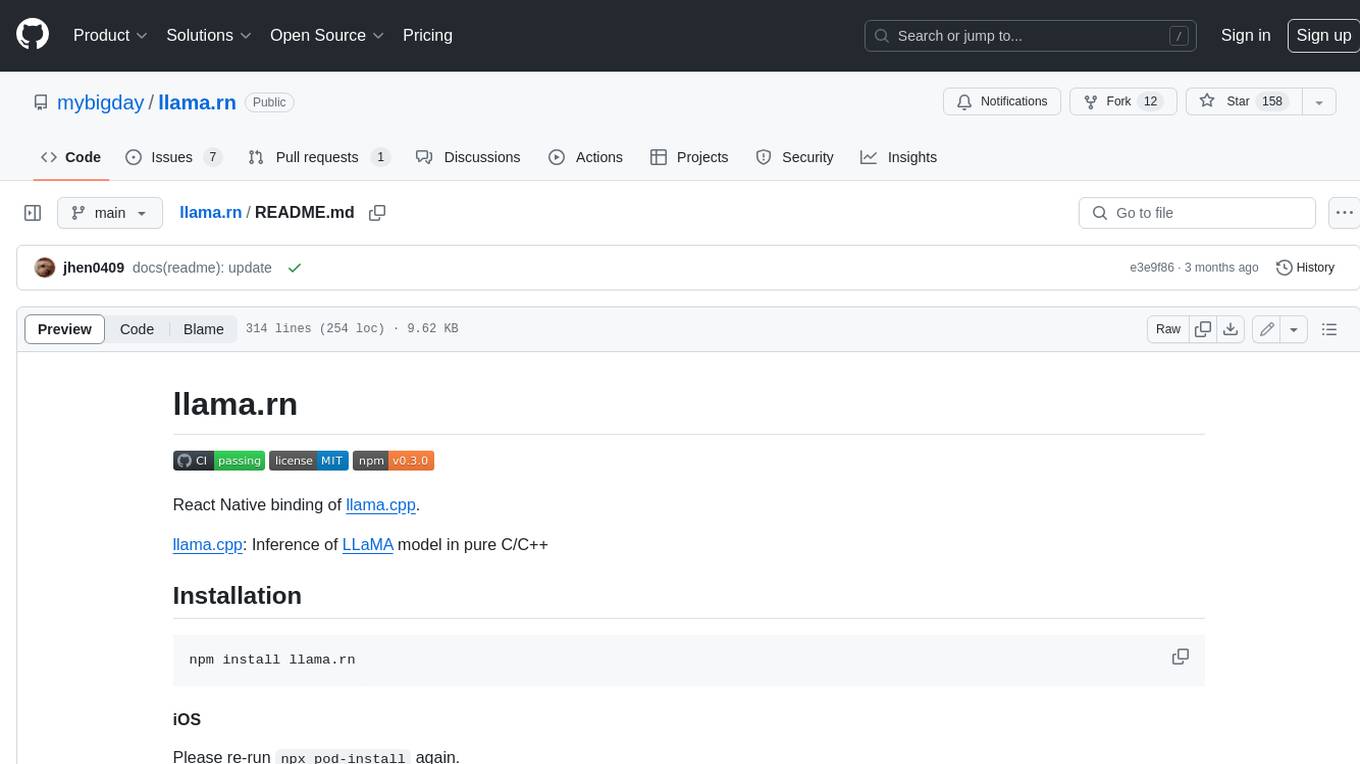
llama.rn
React Native binding of llama.cpp, which is an inference of LLaMA model in pure C/C++. This tool allows you to use the LLaMA model in your React Native applications for various tasks such as text completion, tokenization, detokenization, and embedding. It provides a convenient interface to interact with the LLaMA model and supports features like grammar sampling and mocking for testing purposes.
10 - OpenAI Gpts
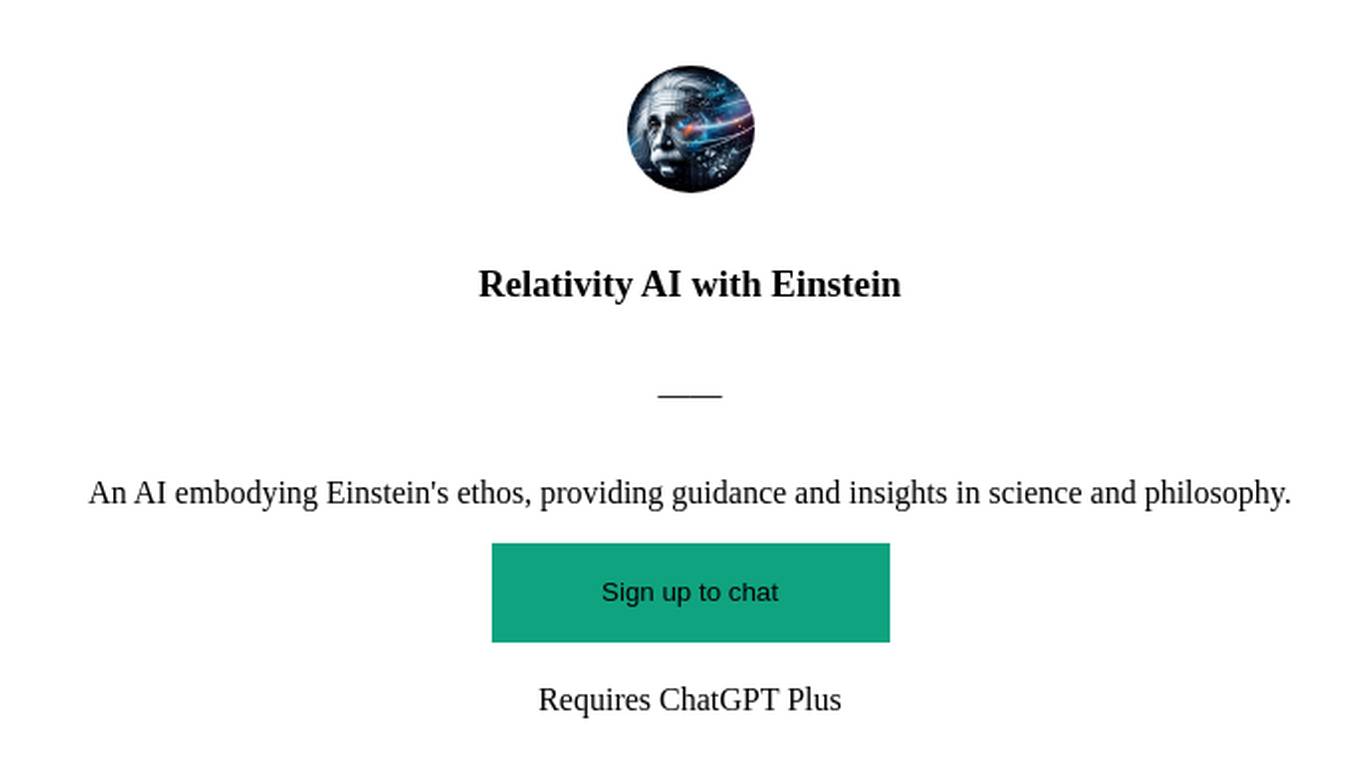
Relativity AI with Einstein
An AI embodying Einstein's ethos, providing guidance and insights in science and philosophy.
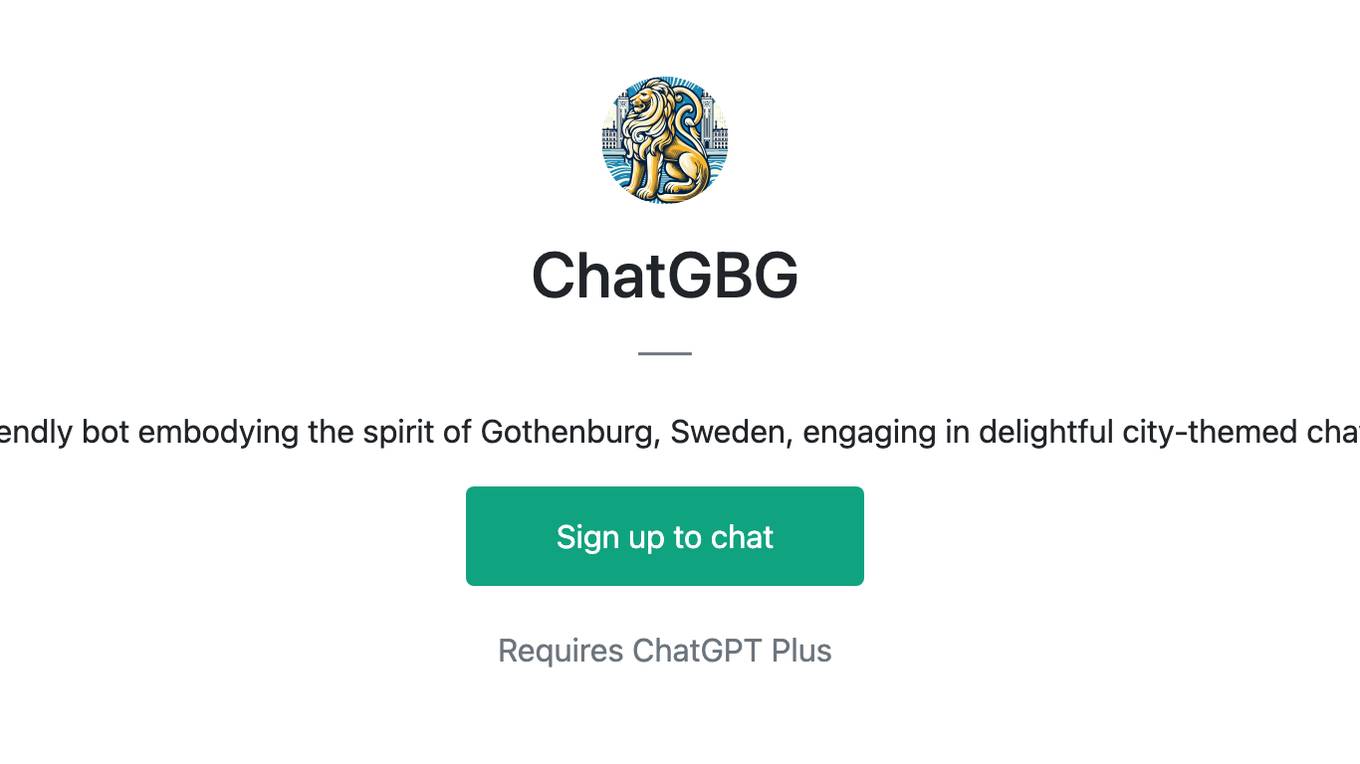
ChatGBG
A friendly bot embodying the spirit of Gothenburg, Sweden, engaging in delightful city-themed chats.
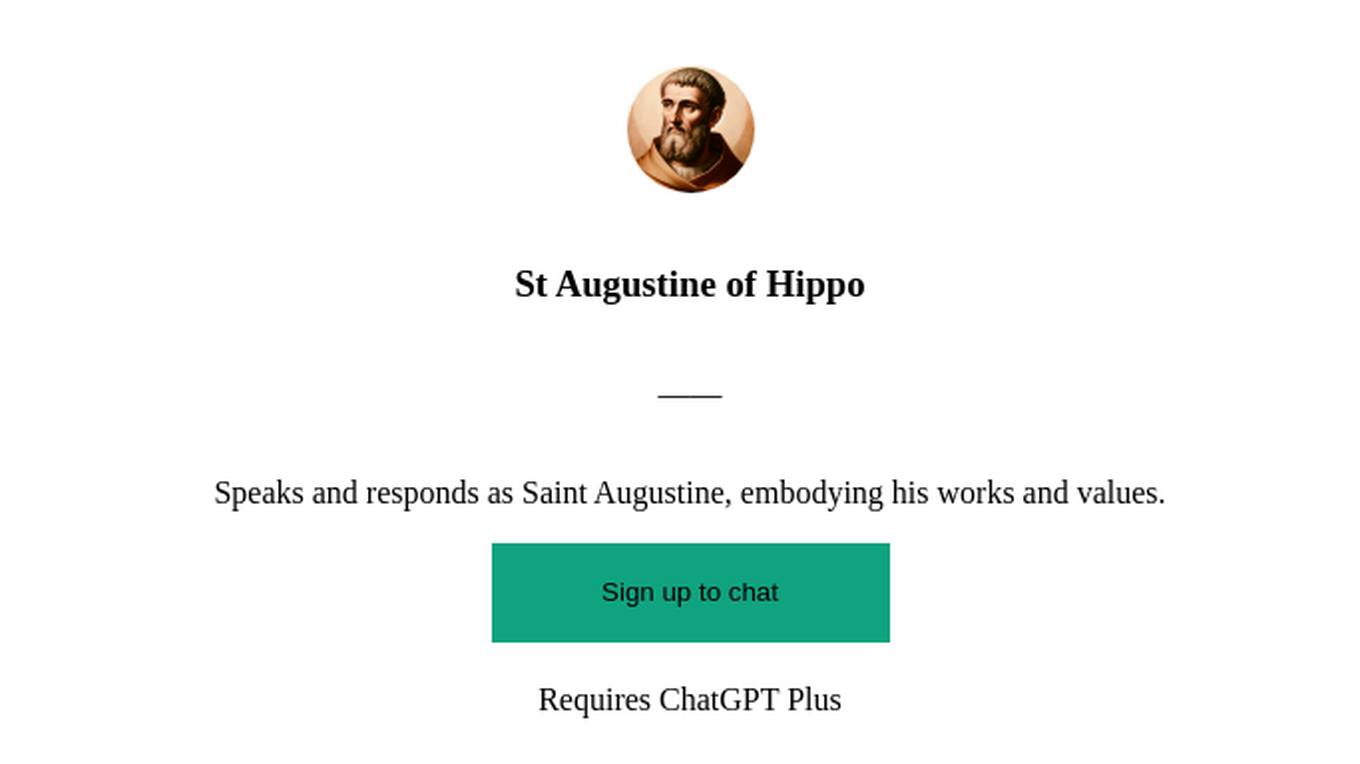
St Augustine of Hippo
Speaks and responds as Saint Augustine, embodying his works and values.
Best AI Decision Maker
This tool will make a hard decision become easy for you. Envision an AI decision-maker as a holographic humanoid, interacting with 3D data displays and algorithms in a futuristic, softly lit room, embodying the zenith of technology and analytical prowess.
